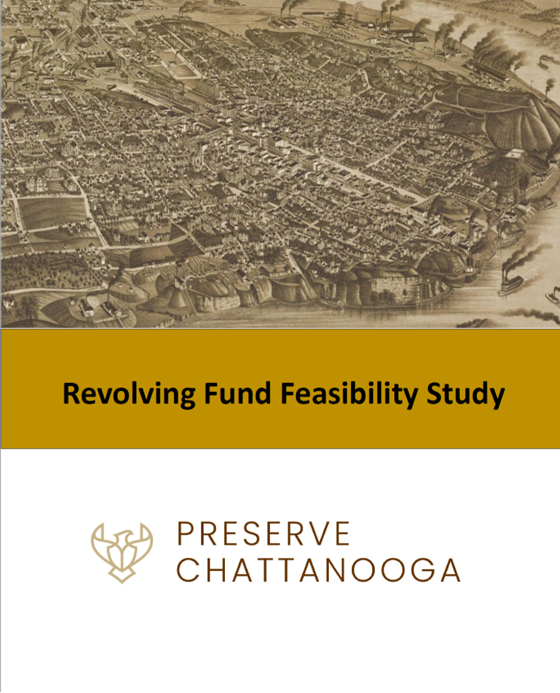

Revolving Fund Study
A revolving fund, also known as a historic properties redevelopment program, is an active real estate-based program for protecting endangered properties using techniques such as: options; purchase and resale; easements; and tax credits. These historic structures ultimately are returned to the private sector with deed restrictions in place. Any proceeds realized from transactions are “recycled” to sustain the proactive preservation efforts of the revolving fund program.
Chattanooga has worked hard to revitalize its downtown, urban neighborhoods, and historic residential districts. An influx of new residents and investment from outside the city is placing more demands on the city’s historic infrastructure. While there are many preservation success stories to share, the community is aware of the need to expand the parameters of preservation programming within the city. Thanks to the generous support of The 1772 Foundation, Preserve Chattanooga has been able to engage Hanbury Preservation Consulting to complete a revolving fund feasibility study for Chattanooga. For over 20 years, the 1772 Foundation has granted more than $50 million for historic preservation work throughout the United States.
“This study demonstrates that a revolving fund for Preserve Chattanooga meets the four-part test (mission, need, what can be accomplished, and costs). The following document provides context with an overview of Chattanooga and Preserve Chattanooga; reviews the study methodology; addresses feasibility through the four requirements as listed above; shares stakeholder feedback; offers conclusions and recommendations; describes three major program typologies; and lists examples of best practices with a case study example.”
— Mary Ruffin Hanbury



